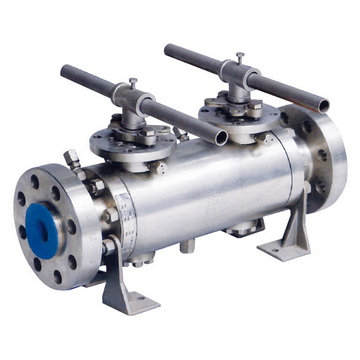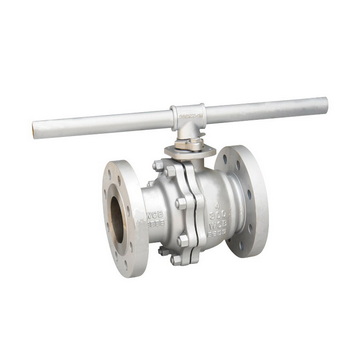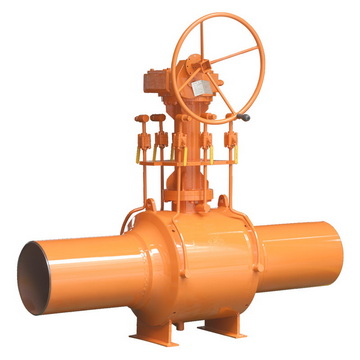Why Metal Seated Ball Valves Are Ideal for Severe Service Conditions?
Content Menu
● What Are Metal Seated Ball Valves?
● Advantages of Metal Seated Ball Valves for Severe Service
>> High Temperature and Pressure Resistance
>> Abrasion and Corrosion Resistance
>> Minimal Leakage in Extreme Conditions
>> Durability and Reduced Maintenance
● Typical Severe Service Applications
● Construction and Design Features
>> Trunnion vs. Floating Ball Design
>> Additional Design Innovations
● Real-World Examples of Metal Seated Ball Valve Use
● FAQ
>> 1. What distinguishes metal seated ball valves from soft seated ball valves?
>> 2. In what applications are metal seated ball valves most beneficial?
>> 3. Are metal seated ball valves suitable for automated operation?
>> 4. How do advanced coatings improve valve performance?
>> 5. Can metal seated ball valves be maintained onsite?
Metal seated ball valves have become the preferred choice for handling severe service conditions in some of the most demanding industrial environments such as oil and gas, petrochemical, power generation, and mining. These valves are engineered specifically to endure extreme temperatures, high pressures, abrasive slurries, corrosive fluids, and conditions that place significant mechanical stress on valve components. Their durability and reliability surpass the capabilities of soft seated valves, which traditionally struggle under such harsh conditions. This article explores the reasons why metal seated ball valves excel in severe service applications, detailing their construction, materials, design features, advanced coatings, and common uses.

What Are Metal Seated Ball Valves?
Metal seated ball valves distinguish themselves from conventional soft seated valves by the materials used for the sealing surfaces. Rather than employing soft polymers such as PTFE or rubber, these valves use hardened metals—like stainless steel, chrome alloys, tungsten carbide, and nickel-based alloys—for both the seats and the ball. This hard metal-to-metal contact delivers a sealing surface far more resistant to wear, erosion, extreme temperatures, and chemical degradation.
Despite this difference, the fundamental operation remains the same: a hollow, perforated ball rotates within the valve body to either permit or block flow. The metal seat design ensures that tight sealing is maintained even in environments where soft seats would quickly deteriorate.
Advantages of Metal Seated Ball Valves for Severe Service
High Temperature and Pressure Resistance
One of the most critical advantages of metal seated ball valves is their ability to handle elevated temperatures and pressures. Metal seats can operate reliably at temperatures well above 1000°F (537°C) depending on the materials and coatings used, whereas soft seats often cannot withstand such heat without deforming or failing. Additionally, metal seated valves sustain very high pressures, including dynamic pressure surges and hydraulic shocks, without leakage or damage.
Abrasion and Corrosion Resistance
Fluids laden with abrasive particles or corrosive chemicals pose a significant threat to valve sealing surfaces and longevity. Metal seated ball valves are typically constructed from corrosion-resistant alloys and hardened with advanced coatings such as chromium carbide, tungsten carbide, or specialized plasma-sprayed layers. This enhances their ability to resist erosion and corrosion, significantly extending the valve's service life in slurry, acidic, or saline conditions.
Minimal Leakage in Extreme Conditions
Soft seated valves can achieve bubble-tight sealing under standard conditions, but metal seated ball valves maintain very tight seals under severe service as well. They often meet ANSI Class IV or V leakage standards, allowing only minimal leakage during pressure tests. This tight sealing capability is crucial for isolation duties in critical processes where leakage can cause downtime or safety hazards.
Durability and Reduced Maintenance
Thanks to their robust construction and resistant materials, metal seated valves typically require less frequent maintenance compared to soft seated variants. Their ability to withstand abrasive and corrosive environments reduces the risk of leakage, seat wear, and valve failure, lowering total cost of ownership through extended operational lifetimes and minimized system downtime.
Typical Severe Service Applications
Metal seated ball valves are widely used in industries where valve performance under severe conditions is non-negotiable:
- Oil and Gas: From upstream drilling operations to downstream refinery processes and pipeline transport, metal seated valves reliably isolate and control fluids exposed to extreme pressure, temperature, and corrosive environments.
- Petrochemical and Chemical Processing: These valves manage aggressive chemicals and high temperatures while maintaining safe and leak-proof operation.
- Power Generation: Metal seated ball valves control steam, feedwater, and condensate flows at very high pressures and temperatures, safeguarding important equipment and ensuring operational efficiency.
- Mining and Minerals Processing: They handle abrasive slurries, corrosive liquids, and high cycle applications common in metallurgical and mineral extraction processes.
- Marine and Desalination: Valves in seawater intake and treatment systems must resist corrosion and ocean abrasion, making metal seated valves a necessity.

Construction and Design Features
Trunnion vs. Floating Ball Design
In severe service applications, trunnion-mounted metal seated ball valves are preferred for high-pressure environments. The design anchors the ball with shafts at the top and bottom, reducing operating torque and minimizing wear on seats. Floating ball valves, which rely on the ball's movement to press the seat tightly, are usually suited for lower pressure applications.
Advanced Hard Coatings
Metal seats are often treated with advanced coatings to enhance their durability and corrosion resistance:
- Tungsten Carbide: Offers excellent abrasion resistance and moderate temperature tolerance, ideal for slurry and erosive fluids.
- Chromium Carbide: Provides both high-temperature resistance and corrosion protection, widely used in petrochemical and power plants.
- Ceramic Overlays (Chromium Oxide, Titanium Dioxide): Used for extreme corrosion and high-temperature protection.
These coatings significantly extend valve service life and reduce the need for maintenance or replacement.
Forged vs. Cast Body
Forged valve bodies tend to be stronger and better suited for high pressure and mechanical stress applications. Cast bodies are sometimes more economical to produce and are suitable for less extreme conditions.
Actuator Compatibility
Metal seated ball valves typically feature ISO 5211 mounting pads, allowing smooth integration with electric, pneumatic, or hydraulic actuators. This capability supports remote operation and automation, which is essential for valves in hazardous or inaccessible environments.
Additional Design Innovations
Severe service metal seated valves often include features such as stem stabilization, live-loaded packing systems to prevent leakage, thermal expansion compensation mechanisms, and design elements to minimize emissions. These innovations ensure operational safety, environmental compliance, and long service intervals.
Real-World Examples of Metal Seated Ball Valve Use
In oil refineries, metal seated ball valves isolate high temperature, high pressure, and corrosive process streams like crude oil and hydrocarbon vapor. In mining, they handle abrasive slurry lines transporting ore and tailings. Power plants use them for superheated steam and feedwater control where valve failure could shut down critical equipment.
Metal seated ball valves are engineered to meet operators' precise process conditions. Experts analyze flow rates, fluid chemistry, thermal shock risks, cavitation potential, and mechanical stresses to select appropriate materials and valve trims.
Conclusion
Metal seated ball valves are engineered solutions for the harshest industrial service conditions. Their hard metal sealing surfaces provide superior temperature, pressure, abrasion, and corrosion resistance compared to soft seated valves. With advanced coatings, intelligent design features, and customizable materials, they minimize leakage, maximize durability, and reduce maintenance needs. Industries that operate under severe service conditions rely heavily on these valves to ensure safety, reliability, and operational continuity. Investing in high-quality metal seated ball valves tailored to specific applications is key to sustaining performance and reducing total cost of ownership in demanding environments.
Contact us today to explore how our precision-engineered metal seated ball valves can meet your severe service requirements. Let's collaborate to deliver the durability and performance your critical processes demand.

FAQ
1. What distinguishes metal seated ball valves from soft seated ball valves?
Metal seated ball valves use hardened metal materials for sealing, offering superior resistance to heat, pressure, corrosion, and abrasion compared to soft polymer seats.
2. In what applications are metal seated ball valves most beneficial?
They are ideal in oil and gas, petrochemical, power generation, mining, and marine industries where fluids are abrasive, corrosive, or at extreme temperatures and pressures.
3. Are metal seated ball valves suitable for automated operation?
Yes, they generally feature international standard actuator mounting provisions (ISO 5211) for electric or pneumatic automation.
4. How do advanced coatings improve valve performance?
Coatings like tungsten carbide and chromium carbide enhance wear resistance and corrosion protection, extending valve life in harsh conditions.
5. Can metal seated ball valves be maintained onsite?
Many designs allow seat and ball replacement onsite, minimizing downtime and maintenance costs.
Hot tags: Metal Seated Ball Valves Severe Service, Severe Service Ball Valve Solutions, High Temperature Metal Seated Ball Valves, Metal Seated Ball Valves For Abrasive Media, Corrosion Resistant Metal Seated Ball Valves, Industrial Metal Seated Ball Valve Applications, Metal Seated Ball Valves For High Pressure, Durable Metal Seated Ball Valve Design, Why Metal Seated Ball Valves For Severe Service, Advantages Of Metal Seated Ball Valves